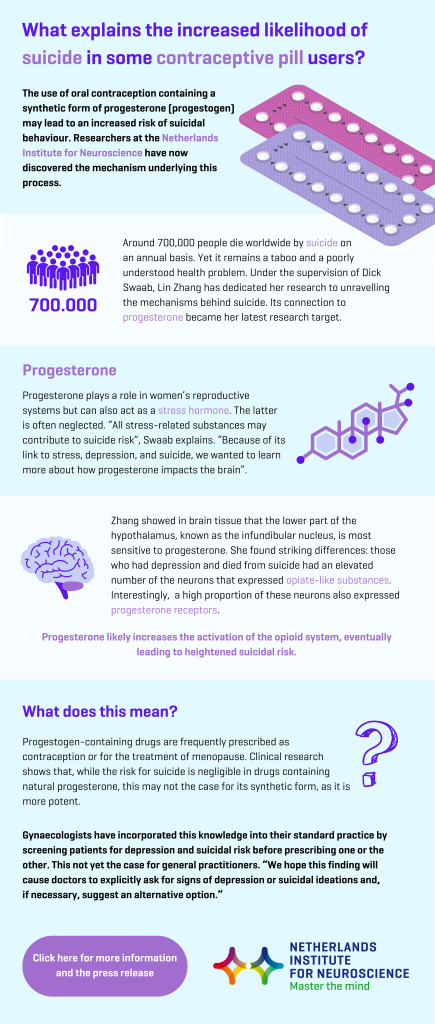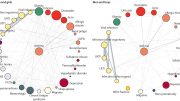
Recent research indicates that synthetic progesterone in oral contraceptives may heighten the risk of suicidal behavior in women with depression. The study underscores the importance of healthcare professionals screening for mental health issues before prescribing these medications, highlighting the role of progesterone in activating the brain’s opioid system, which could lead to increased suicide risk.
The administration of oral contraceptives that include a synthetic variant of progesterone (progestogen) could elevate the risk of engaging in suicidal behaviors among women who have depression and thoughts of suicide. Scientists at the Netherlands Institute for Neuroscience have recently uncovered the mechanism that explains this phenomenon.
“We hope this prompts doctors to inquire about the potential presence of depression and suicidal ideations, and, if necessary, modify their recommendations for contraceptives or menopausal treatment.”
Around 700,000 people die worldwide by suicide on an annual basis. Yet it remains a taboo and a poorly understood health problem. Under the supervision of Prof. Dr. Dick Swaab, Dr. Lin Zhang has dedicated her research to unraveling the mechanisms behind suicide. Its connection to progesterone became her latest research target.
Progesterone plays a role in women’s reproductive systems but can also act as a stress hormone. The latter is often neglected. “All stress-related substances may contribute to suicide risk”, Swaab explains. “Because of its link to stress, depression, and suicide, we wanted to learn more about how progesterone impacts the brain”.
The Progesterone Receptor
Zhang was able to study brain samples obtained through the Netherlands Brain Bank, ranging in age, sex, diagnoses, and causes of death. Her research showed that the lower part of the hypothalamus, known as the infundibular nucleus, is most sensitive to progesterone. This became the focus point of her research.

Infographic – What explains the increased likelihood of suicide in some contraceptive pill users? Credit: Netherlands Institute for Neuroscience
In patients with depression who died as a result of suicide, Zhang found an elevated number of cells producing an opiate-like substance. This increase was contributed by the fact that they co-expressed the progesterone receptor. Swaab: “It is known that taking opiates increases the risk of suicide. The brain is sensitive to opiate-like substances because it also makes those substances itself. So progesterone likely increases the activation of the opioid system, eventually leading to heightened suicidal risk”.
An additional notable observation by Zhang was that signs of cell division appeared in the infundibular nucleus of the aged population. The generation of newborn neurons in the adult human brain, especially in the elderly, is still a topic of debate among neuroscientists.
Implications in practice
Progestogen-containing drugs are frequently prescribed as contraception or for the treatment of menopausal complaints. Clinical research shows that, while the risk for suicide is negligible in drugs containing natural progesterone, this may not be the case for its synthetic form, as it is more potent.
Gynecologists have incorporated this knowledge into their standard practice by screening patients for depression and suicidal risk before prescribing one or the other. This is not yet the case for general practitioners. “We hope this finding will cause doctors to explicitly ask for signs of depression or suicidal ideations and, if necessary, suggest an alternative option.”
Reference: “Progesterone receptor distribution in the human hypothalamus and its association with suicide” by Lin Zhang, Ronald W.H. Verwer, Joop van Heerikhuize, Paul J. Lucassen, Peter W. Nathanielsz, Elly M. Hol, Eleonora Aronica, Waljit S. Dhillo, Gerben Meynen and Dick F. Swaab, 23 January 2024, Acta Neuropathologica Communications.
DOI: 10.1186/s40478-024-01733-y









Be the first to comment on "The Hidden Link: New Research Unveils How Contraceptives Increase Suicide Risk"